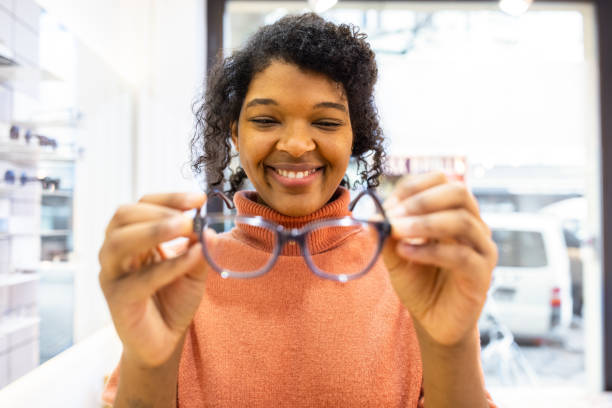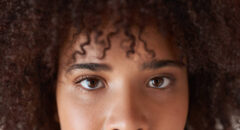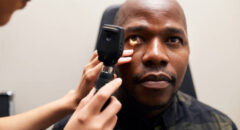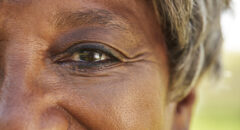
As we journey through life, nurturing our bodies to ensure healthy bones, hearts, and brains often takes center stage. However, one crucial aspect of our well-being should never be overlooked, especially as the years pass - our vision. Just as the body changes with age, so does our eyesight, and understanding the key factors that impact it is of paramount importance.
Healthy Bones, Heart Health & Brain Health
Healthier bones, hearts, and brains are important as we age. But your vision is very important and should not be ignored. As we age, so does our vision.
According to Dr. Diane Hilal-Campo, MD, author of Twenty/Twenty Beauty, "As we age, the lenses in our eyes are less flexible, making it difficult to focus on close-up things like books or digital gadgets," thus calling for the use of reading glasses. This trend will continue to need regular dosage changes as we get older.
Dr. Hilal Campo warns that aging increases the risk of developing eye diseases, including macular degeneration, glaucoma, and cataracts. She argues that although it may not be possible to completely prevent such events, the likelihood of their happening may be reduced. Indeed, some behaviors substantially increase the danger of developing certain diseases. Keep reading to find out about them all.
RELATED: 3 Ways To Naturally Improve Your Eyesight
The #1 Worst Habit For Eye Health
Dr. Sandra Brown, MD, a board-certified ophthalmologist and Dry Eye Foundation medical adviser, considers cigarette use the worst habit for eye health. Few people realize that smoking or vaping may damage your eyes, yet many know that tobacco use harms the heart.
Dr. Brown believes smoking raises macular degeneration risk by 400% and cataract risk by 300%. Smoking harms the retina, lens, and macula, which are essential for vision (which is important for sharp vision).
If you use tobacco or smoke, realize that even vaping without tobacco might harm your eyes.
A study of vaping and ocular health found that aldehydes and free radicals in e-cigarettes may disrupt tear film stability, and vape flavorings can harm the lipid layer via peroxidation. Not to mention corneal stains and other eye issues.
Cloudy vision, dimmer colors, light sensitivity, night vision problems, and double vision are symptoms affecting your eyesight. Contact an eye doctor to discuss treatment and measures to avoid vision loss if you have any of these visual issues.
RELATED: What’s Your Vision of the Future? 7 Tips For Healthier Eyes
Other Common Habits That Negatively Impact Eye Health
Aside from smoking, other habits may damage eyesight. Certain eye makeup may irritate the eyes, raising the risk of infection and scarring, explains Dr. Hilal-Campo. According to her, some cosmetics include hazardous compounds that might damage the eyes. To limit the danger, she suggests ophthalmologist-approved eye makeup.
Eye makeup application may also impair eyesight, adds Dr. Hilal-Campo. For instance, applying eyeliner to the waterline might increase infection risk and obstruct the meibomian glands, which generate oil to protect the eyes from microbial and organic contaminants. This may cause permanent gland damage, chronic dry, irritated red eyes with fluctuating vision, and corneal damage, explains Dr. Hilal-Campo.
Both ophthalmologists think screen time may impair eyesight. Dr. Brown explains, "Although excessive screen time may be job-related, many individuals accrue as much if not more, screen time using their cell phones. Looking at a bright screen reduces blinking, which speeds up tear evaporation. Her words: "This is generating an epidemic of early-onset dry eye disease." Drying eye illness may influence every part of life, including reading and outdoor sports. When incapacitating, it may cause job loss, despair, and financial difficulties.
Both ophthalmologists conclude that not wearing sunglasses outdoors is detrimental to eye health. Dr. Brown advises wearing them on cloudy days. UV exposure increases the development of cataracts and macular degeneration. She believes it may also harm the cornea and conjunctiva, the transparent skin above the white eye wall.
You can do plenty to safeguard your eyes and minimize your risk of sight-threatening disorders, even if you cannot avoid visual decline with age. Science has shown that!









